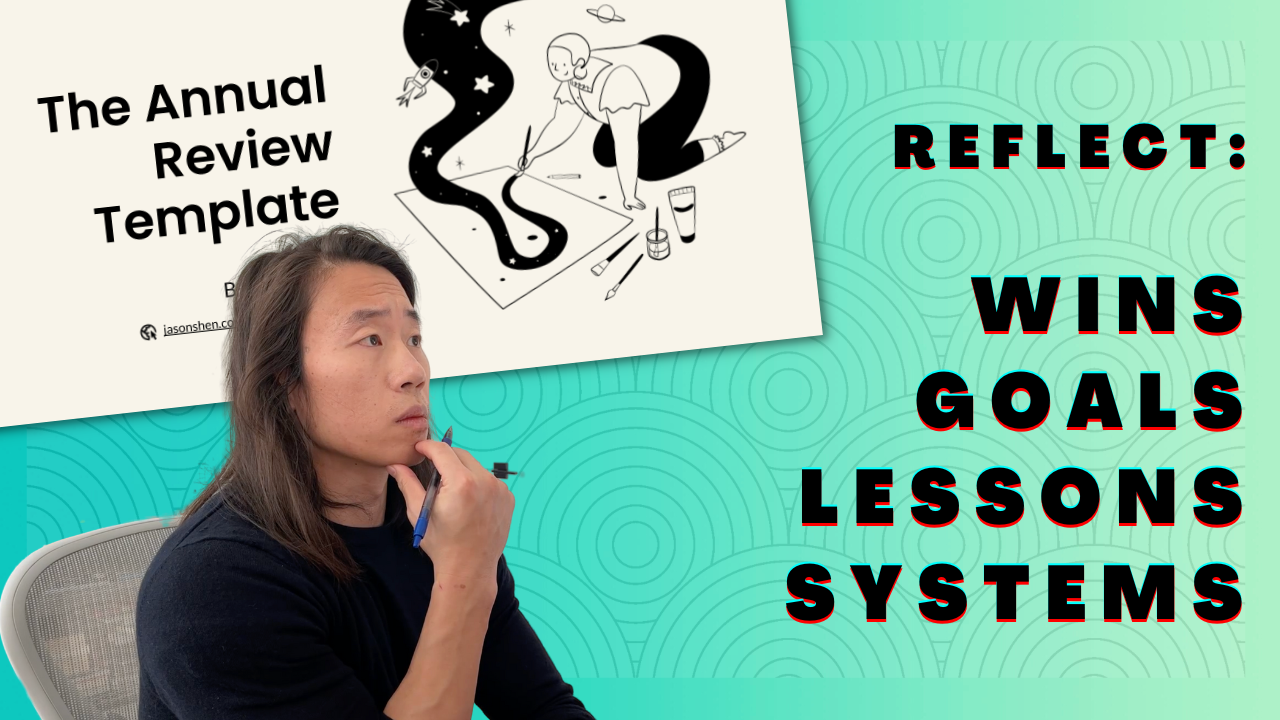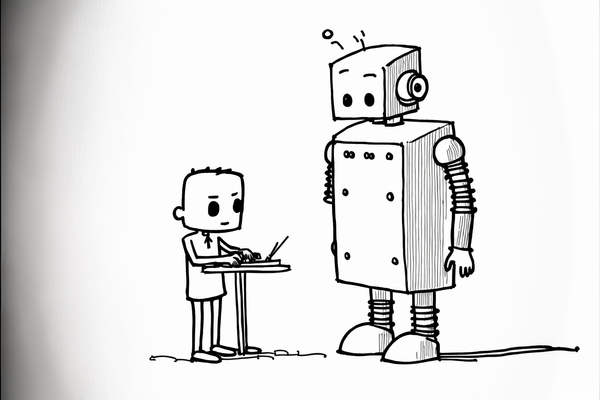This week, I had the pleasure of leading 7 creative leaders through a storytelling framework I've been developing.
What I love about workshops like these is the opportunity to try out new ideas with a live audience to ensure it works as intended before I publish more on the topic for a wider audience or add it to my coaching toolkit. In fact I invited two clients to the workshop since rewriting their narrative was a big part of our work together, which worked out great. I'll be hosting another workshop on courage in a few weeks if you'd like to join,
Before I close this issue, I want to acknowledge my sadness around the three tragic mass shootings that have impacted the AAPI community in the last few weeks. It's a heavy way to begin the new year.
Wishing you all peace and justice.
—Jason

🤔 Announcements
- 📆 Reboot Your Life: Finding Courage (A Fear-Setting Workshop) - Feb 14 — a workshop where we use the Fearsetting framework popularized by Tim Ferriss to confront and deconstruct our greatest fears
- 📝 The 5C Storytelling Skills Assessment — take this free 10 question quiz and see how well you're doing in terms of your personal storytelling
🧠 Effortless Writing: My AI-Powered Voice to Text Workflow
I've always believed that technology's greatest value is in being a tool. In enabling individuals and organizations to do more, reduce annoying or dangerous tasks, and allow human beings to do more of what truly excites and engages them.
Which is why I've been so excited about the opportunities in Generative AI, devoted an entire issue of nearly 4,000 words to the topic.
Today I'm going to share how I leveraged free & low-cost tools to leverage AI to enhance my narrative / memoir writing. If you've been looking for a practical application for GPT-3, this is a great place to start for three reasons:
- Useful for any kind of writing—for many people, getting the first draft of a piece of content is the hardest part. This workflow shortcuts the distance between inspiration and a coherent chunk of writing.
- Affordable—after a flat $20/mo fee, a single process costs less than $1.50 to instatly generate output that would otherwise cost $50+ for a human to do.
- Doesn't require the ability to code—the most technically difficult thing is generating an API key (which can be done via a web interface).
Getting Started
What You Need
- Google Drive (free)
- Zapier (14-day free trial, starter plan $20/mo)
- Temi ($0.25 / min transcription, ~$1 per job)
- OpenAI ($0.02 per 1,000 tokens, ~$0.03 per job)
What You Get
- Input: record and upload a 3-5 min voice memo.
- Output: a 300-500 mini essay based on your ideas + main topics/themes, key passages, areas to explore & expand, a suggested title
Example (full output):
Original Voice Memo
Machine transcription (excerpt)
Speaker 1: 00:31 Of course, before you really start to think about writing, you think about reading. I absolutely loved reading books. As a kid, I would read books in the car, at bed, at the dinner table if I could. And from a young age, I just found great joy in books and reading above my grade level. My mom likes to tell the story of how as a kindergartner or first grader I was reading to a fourth or fifth grade audience. I think I had memorized the words at that point. So was I really reading? But the bottom line is I was reading a lot as a kid. Um, I even liked reading commercial things like the description of a cereal box or a shampoo. Uh, when I was on the toilet, reading was opening doors, opening universes. It captured my imagination. I read a lot of fantasy, a lot of science fiction. I didn't like reading quote unquote realistic fiction. I found that boring, not exciting, and too much like real life. I remember reading the house on Mango Street or something, and the stories just seemed sad and about real life kids who had challenges in family difficulties. And I didn't want to read that. I wanted to read about,
The AI's Rewrite (unedited excerpt)
As I reflect on the story of my writing, I think back to when I first began reading. Even as a young child, I found books immensely captivating and often read above my grade level. Every chance I got - in the car, at bedtime, even at the dinner table - I would take out a book and get lost in another world. Anything was possible - aliens, space, dragons, magic, and all the wonders of a far off land. My mother remembers how I could recite the storylines and words of whatever I was reading, almost as if I had memorized them. But still, it allowed me to escape reality, and I loved that more than anything.
The AI's Suggestions (excerpt)
4) The text could be improved by providing more detail on the books the narrator read and how they impacted their writing. Additionally, the story the narrator's father tells could be included, either in this essay or in a subsequent one.
6) The most unique and quotable section of the text is when the narrator describes their love of reading from a young age. This is unique because the narrator talks about enjoying reading even mundane things such as cereal boxes and shampoo bottles. This is an interesting and humorous anecdote that highlights the narrator's love of reading.
Additional Commentary:
The AI rewrite condenses the transcript and does more than just summarize—it moves info from later in the piece further up. It's not perfect and it uses some language I might not immediately use but am willing to use "get lost in another world". But overall it assembles a very passable first, even second draft of a memoir segment.
How it Works
- Human (Jason) uploads a voice memo to specific Google Drive folder
- Zapier checks for new files in Google Drive, sends audio to Temi for transcription
- Zapier checks Temi for completed transcript, sends it back to different Google Drive folder
- Zapier checks for new transcripts, sends them to OpenAI with 3 separate prompts (rewrite, suggestions, tweet thread)
- Zapier generates a fresh Google Doc with OpenAI outputs from 3 prompts + raw transcript
- Human (Jason) gets to enjoy a thoughtfully drafted start to an essay or topic + ideas on how to keep going
How to Set This Up for Yourself (detailed)
I'm going to assume here that you already have a Google Drive account (otherwise make one).
1. Create a Zapier account
You can start with Free plan which has a cap of 100 jobs per month (fine to start). I've bumped up one to the Starter plan ($20/mo).
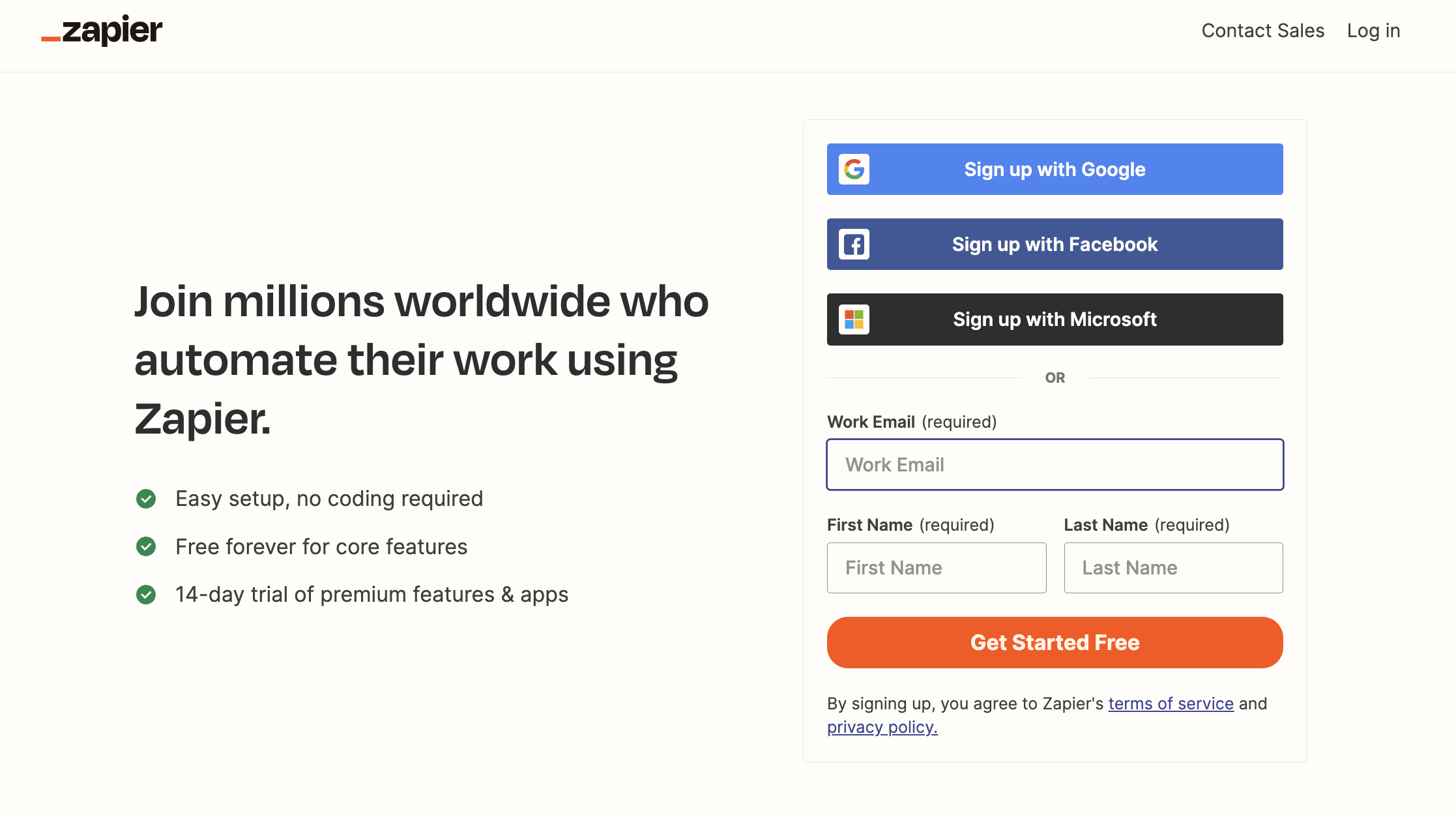
2. Create a Temi account
This is what transcribes your voice memos. Fund it with some money ($5 to start is probably fine)
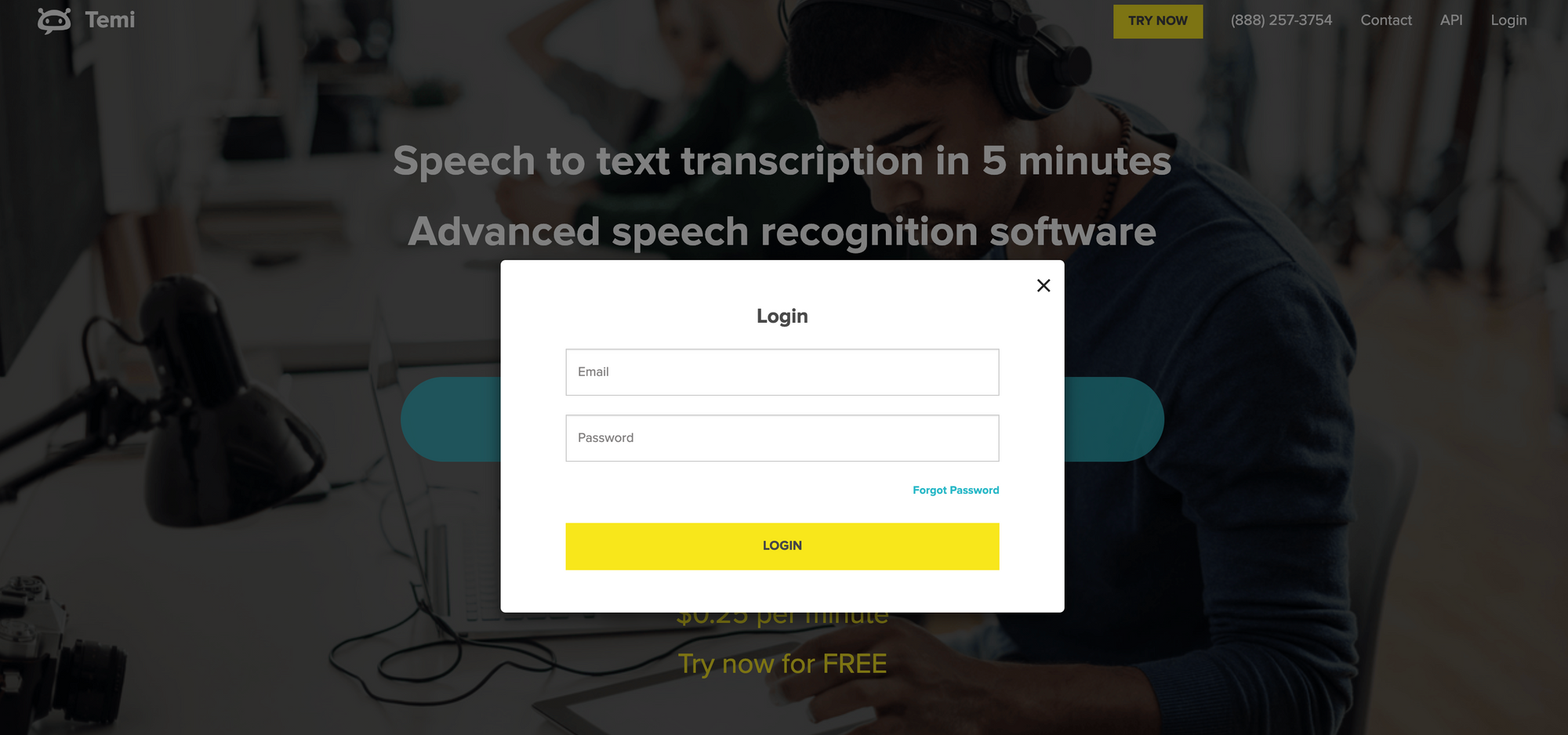
3. Copy this Zap and connect your Google Drive
This allows you duplicate my connection so you can simply modify with your accounts.
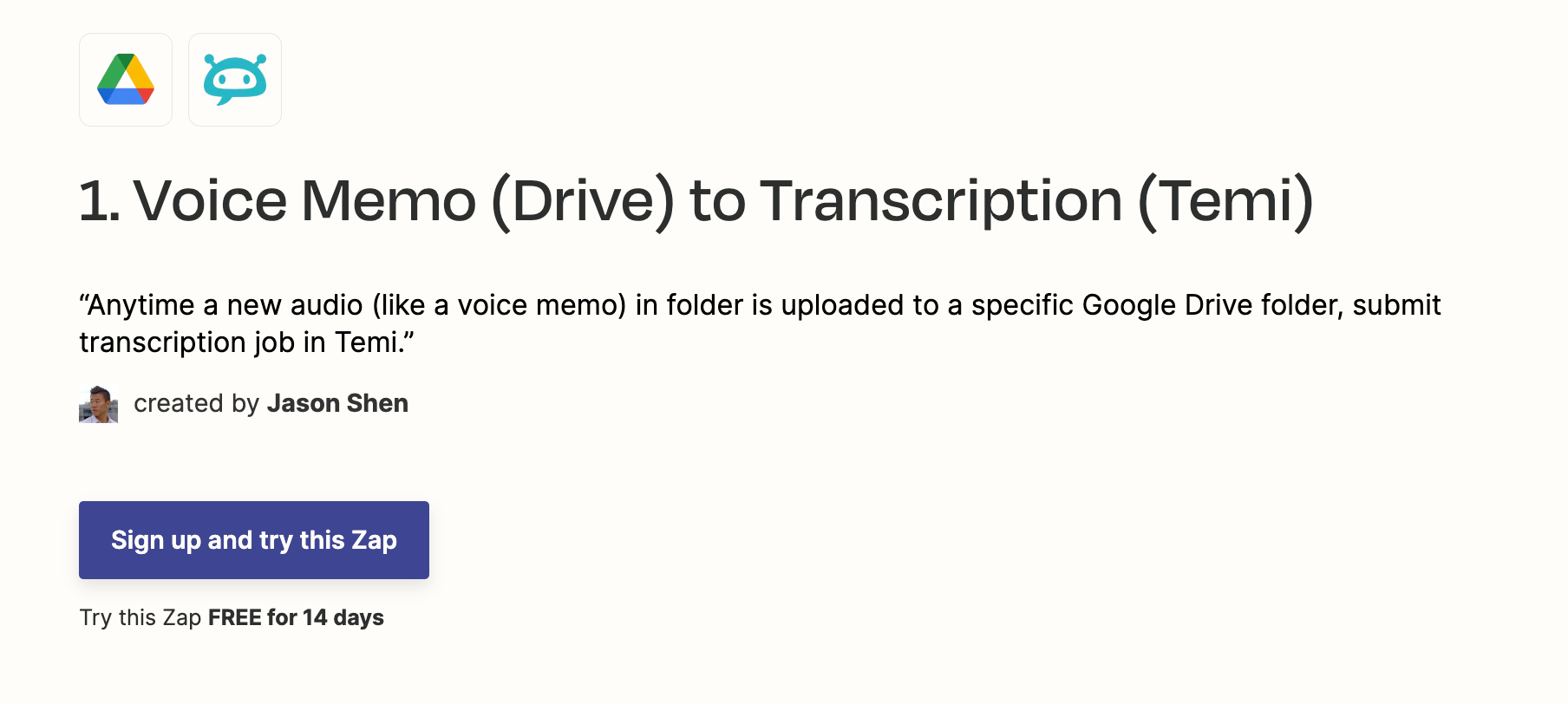
3. Get an API key for Temi to connect to Zapier
This long string lets Zapier send files directly from Google Drive to Temi

5. Create/choose a specific G Drive folder that Zapier checks
This tells Zapier where you're sending your audio files to so it can check there.
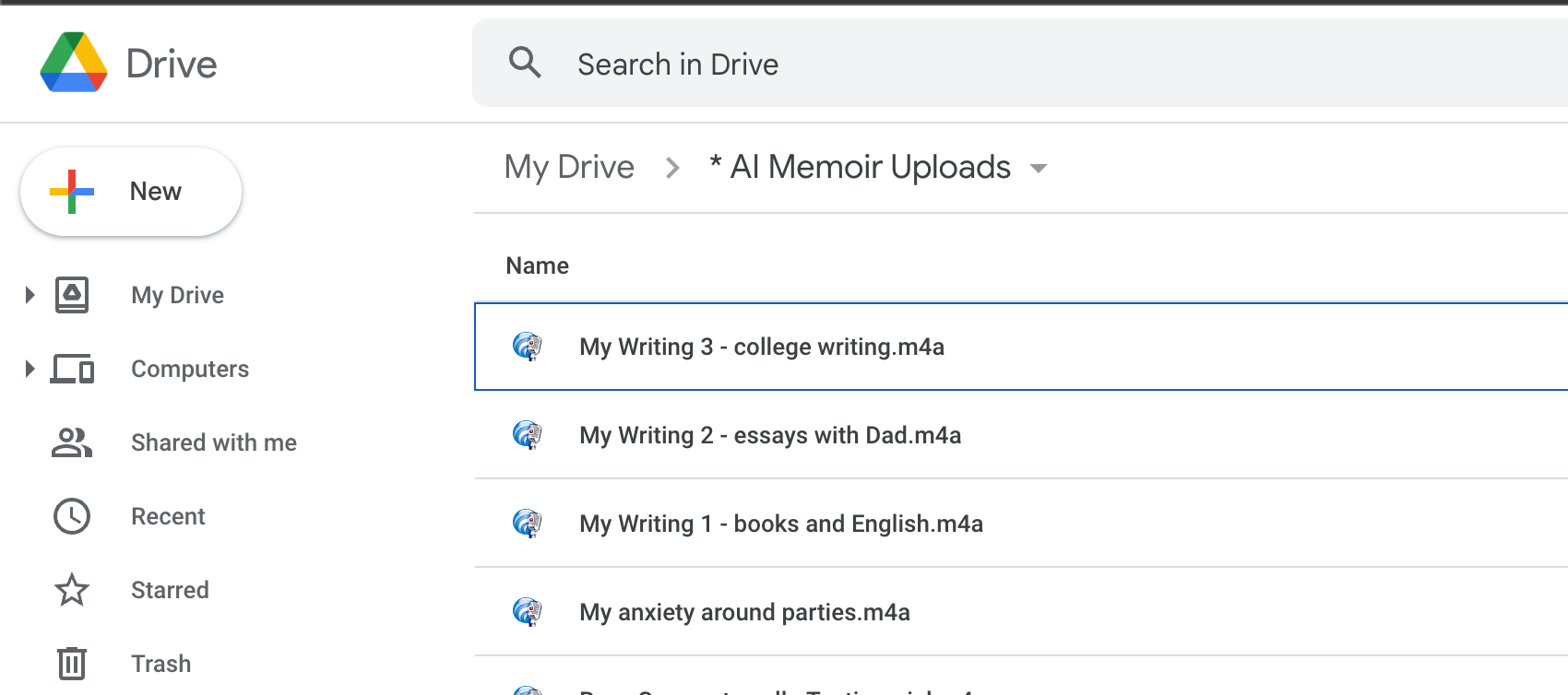
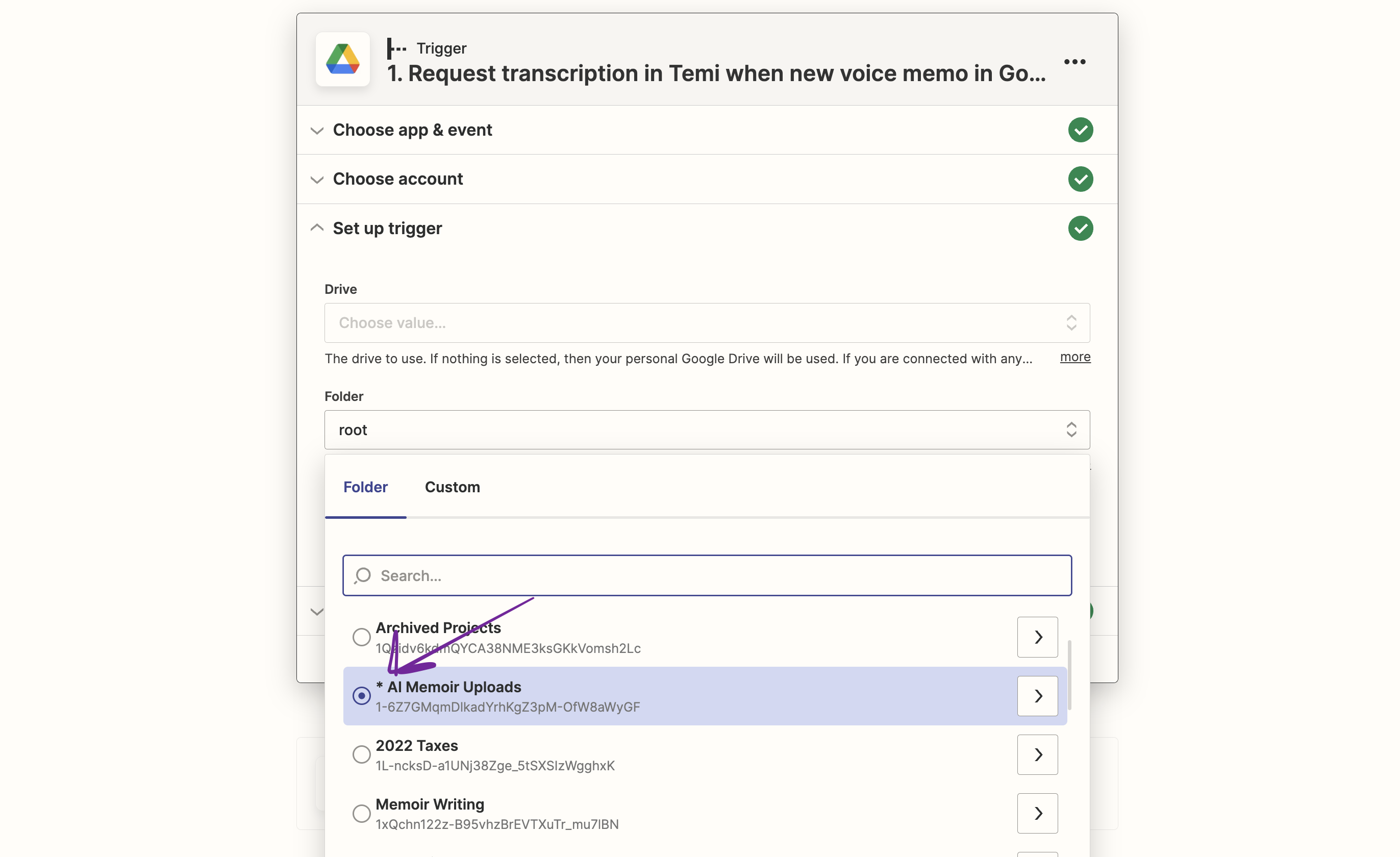
6. Select "File" as the option for Media URL + Title for the Reference File
This makes sure you're sending the actual audio file and not something else that Temi won't be able to transcribe. Title gives the audio file a reasonable name (make sure you name your voice memo's something meaningful)
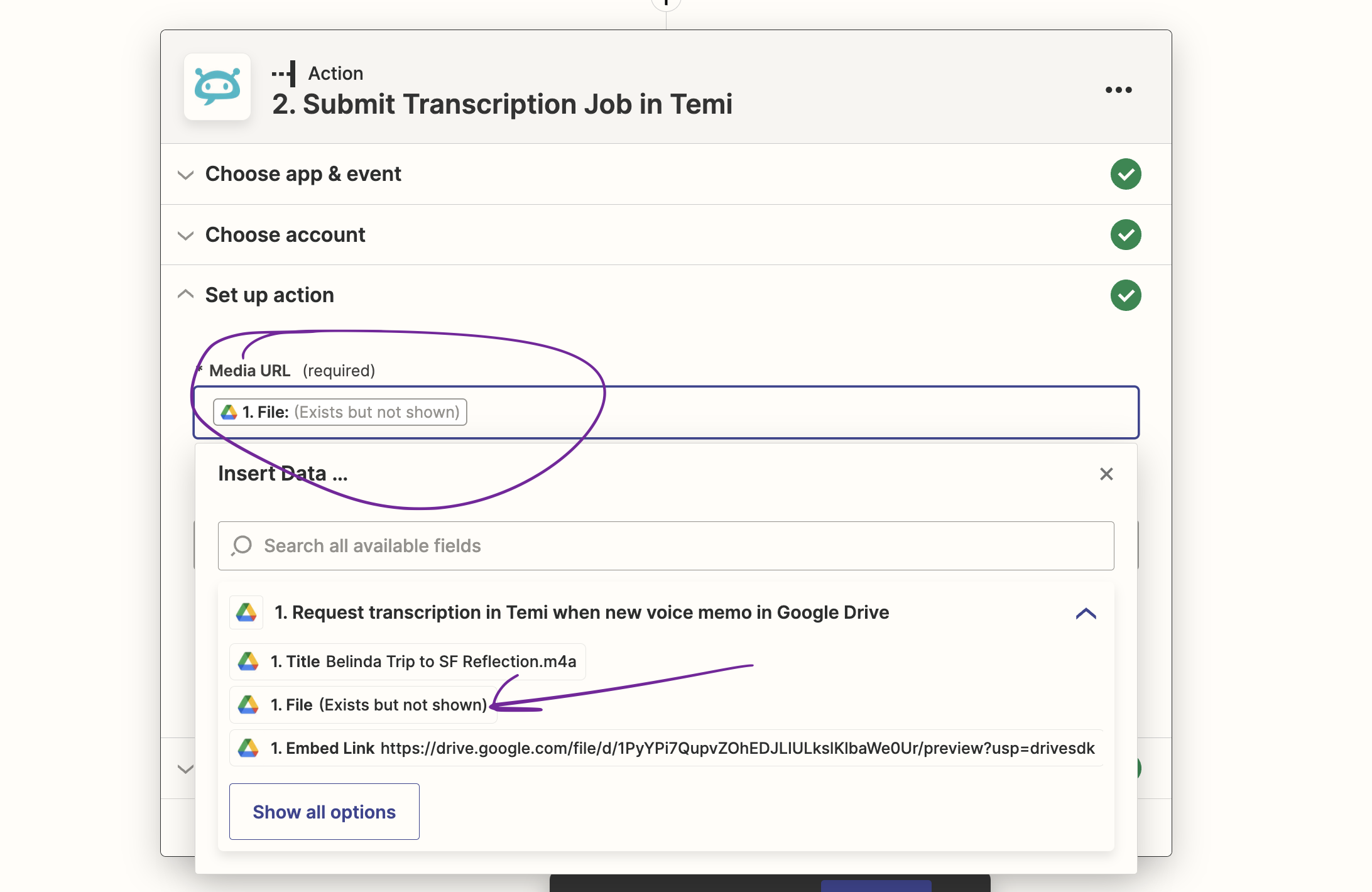
7. Copy this 2nd Zap to send the transcript back to Google Docs
This checks Temi to see when the transcript is done, and converts the raw text file into a Google Doc - this is necessary to ensure the next step works correctly.
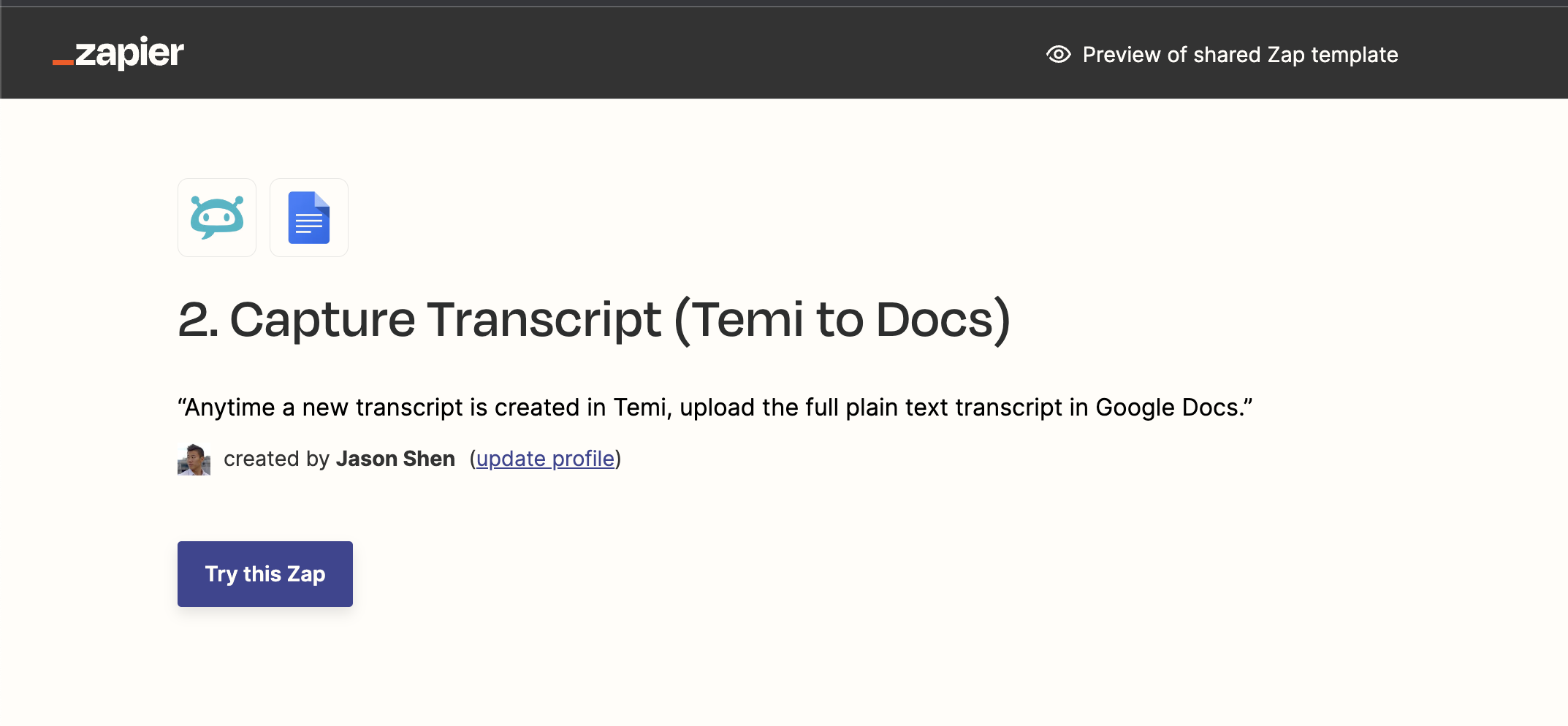
8. Make an OpenAI account
It comes with a bunch of free credits, enough to test this out a number of times before adding a credit card.
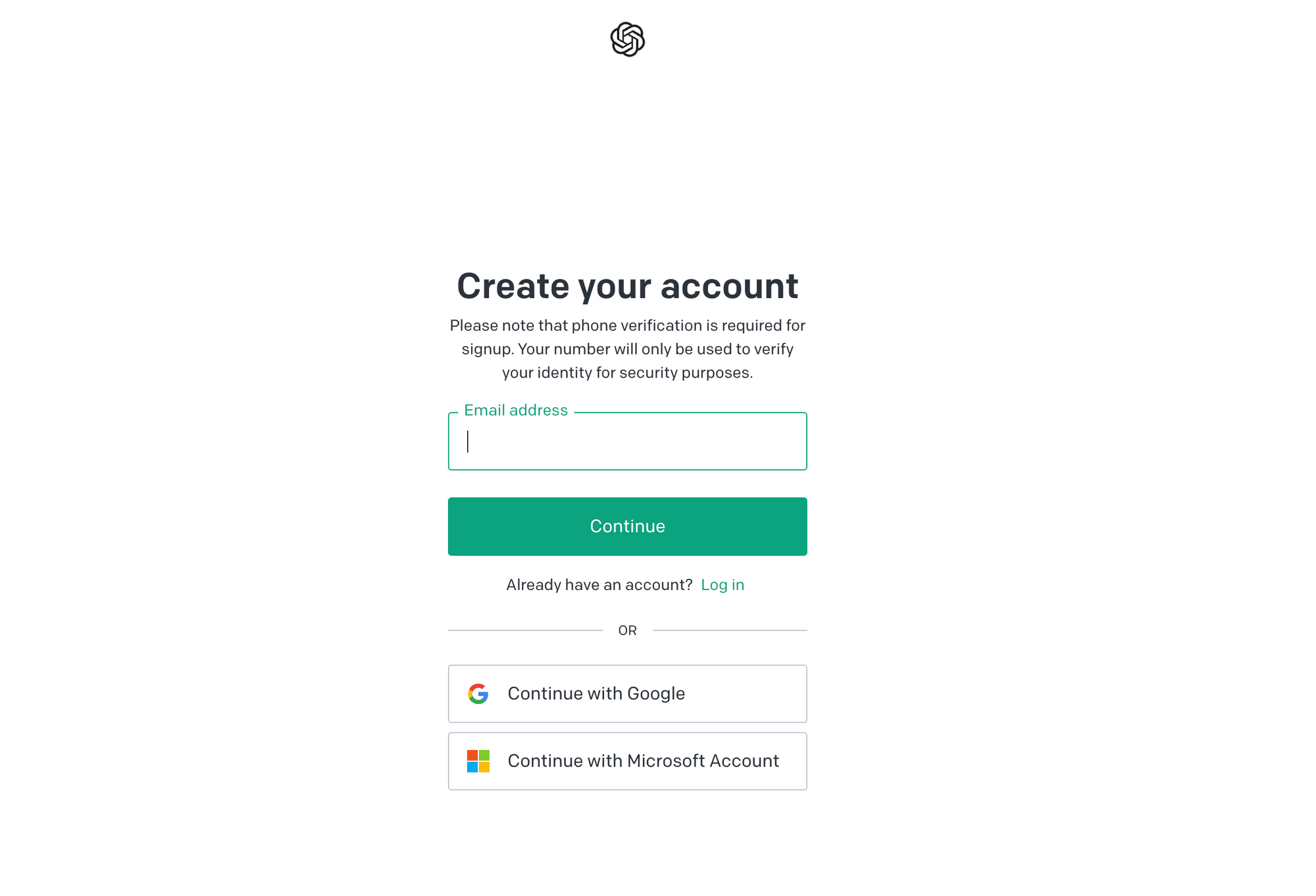
9. Copy this 3rd Zap to submit the transcript data to OpenAI
This final Zap is the one that does the AI magic. You send the text of the Google Doc to OpenAI. This is why you can't use the Free Zapier plan—it doesn't support multi-step Zaps and you need at least a 3 step process (G Docs -> OpenAI -> G Docs). My version has 2 OpenAI prompts plus an SMS text that tells me the latest job is done.
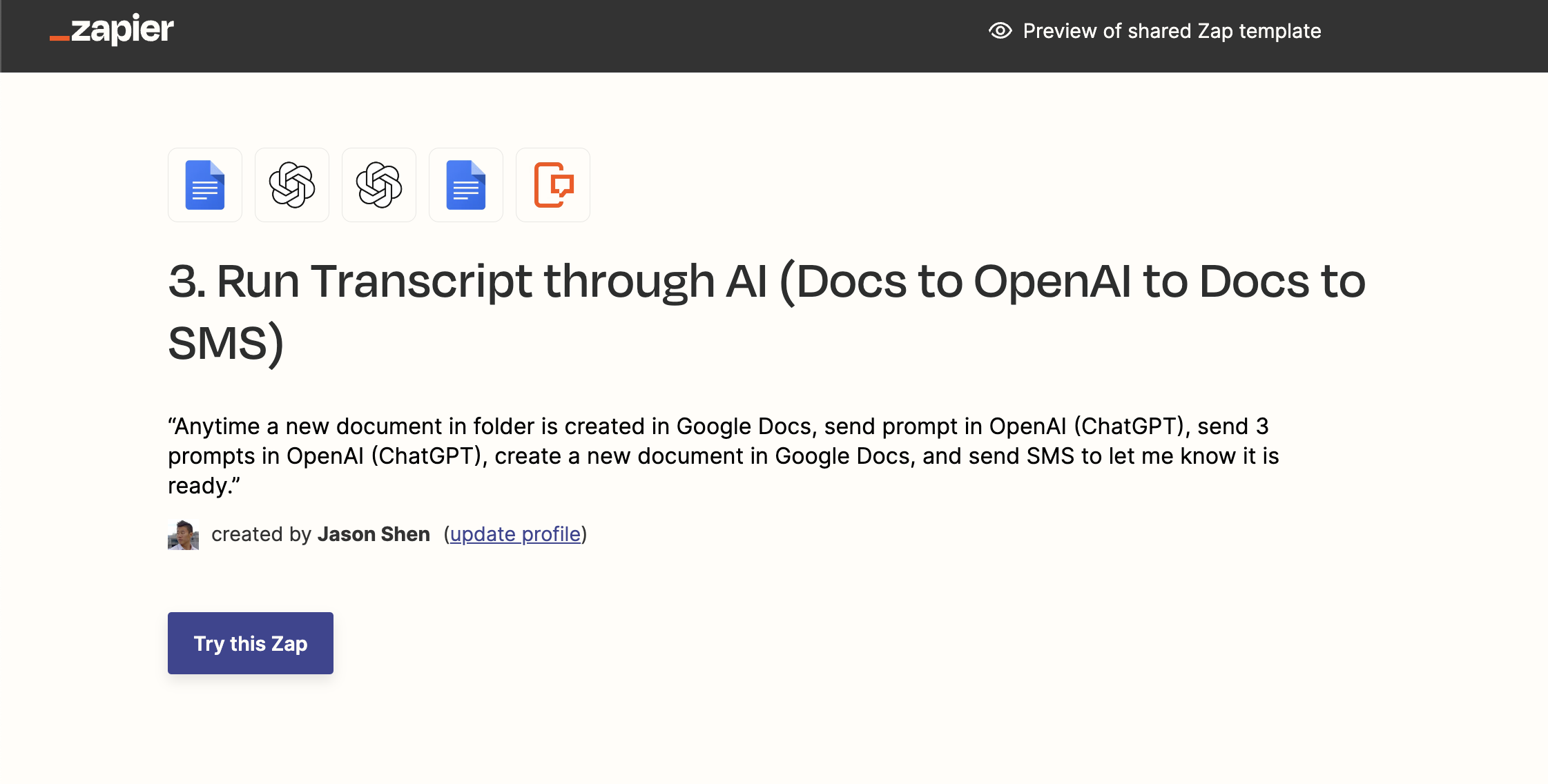
10. Tweak the OpenAI prompts & settings to meet your needs
The two OpenAI prompts I am currently using as of Jan 28 are:
[Act as the world's greatest memoir writing instructor. Given the text below, return 1) a brief description of the text 2) four short headings that capture the major ideas in the text 3) the key emotions conveyed or potentially felt by the narrator 4) provide suggestions on how the text could be improved or expanded upon 5) write the first sentence of the next section of this piece and 6) identify the most unique and quotable section of the text and explain why it was so interesting and 7) Suggest a creative title for the entire section]
Text: * Full Text of Voice Memo Transcript *
1. Description:
and
[Act as the world's greatest memoir and narrative nonfiction writer. Rewrite and expand on the text below using an informal, reflective, contemplative style. Write in the first-person and describe narrator's thoughts, feelings, and experiences in a deep and emotionally moving way. Include sensory details like sights, sounds, tactile information from what is described. Conclude at the end with the narrator's helpful ideas, advice, and encouragement for the reader.]
Tex: * Full Text of Voice Memo Transcript *
Rewrite & Expand:
Try rewriting the prompts to fit your use case. Maybe you are trying to write in an academic or business oriented tone. Maybe you want the AI to generate possible objections to the ideas in the text and rebuttals to those objections. Maybe you want the names of books or writers who cover the topic you're exploring.
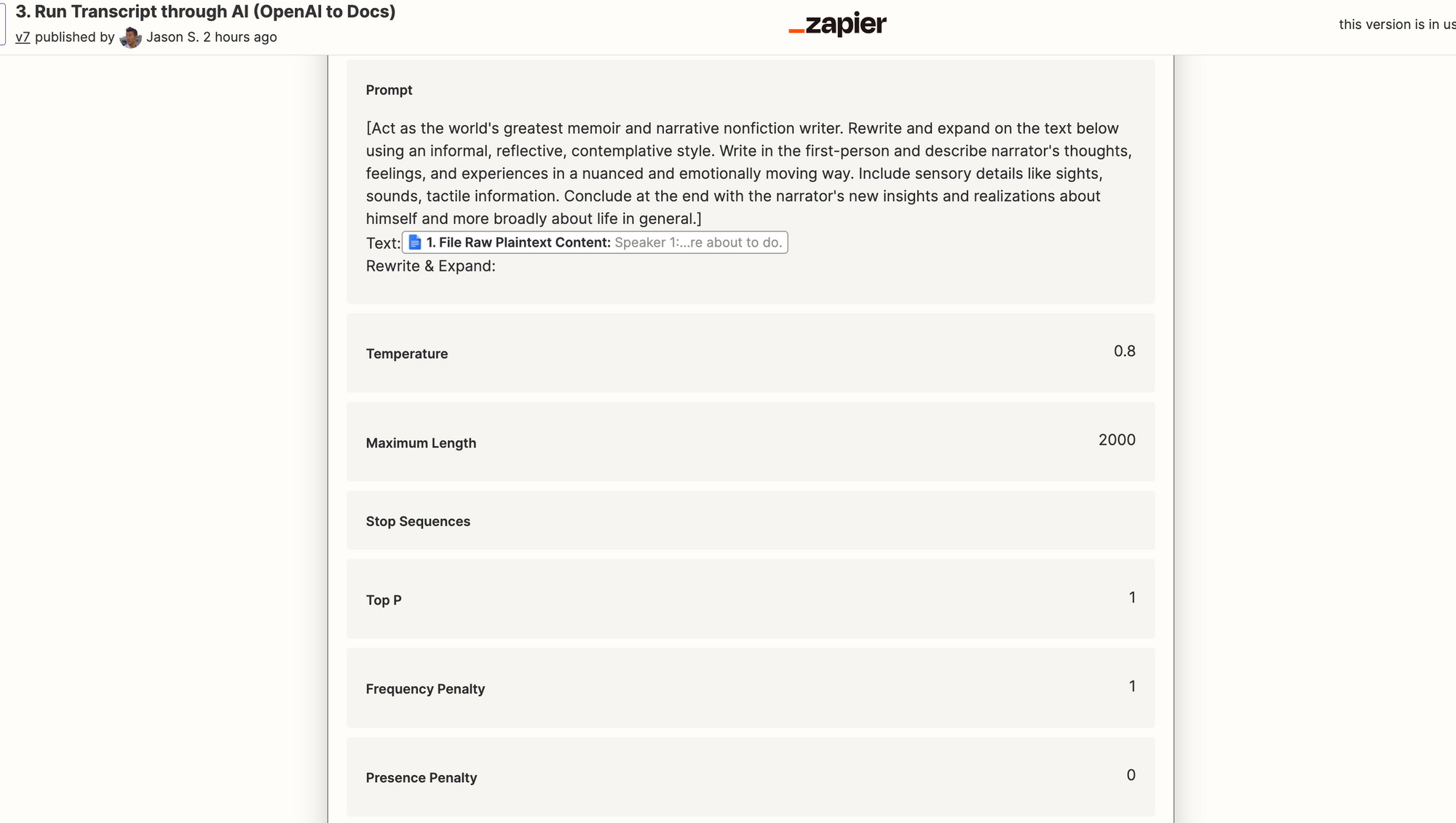
The settings are another place to make adjustments. Here's what I currently have:
- Model: text-davinci-003 (this is the latest and
- Temperature: 0.8 (dial it down to make it more conservative, up for more creativity, max is 1)
- Maximum Length: 2000 (This represents the maximum number of tokens consumed in a job. 1 token equals about 4 characters or 3/4 of a word. The transcript and prompt are included in the maximum number of tokens consumed per job, so realistically with a 5 min voice memo being around 500-600 words, you're looking at a 400-500 word rewrite, with some buffer room)
- Stop Sequence: blank (This is optional and sets up characters that would cause the AI to stop generating text)
- Top P: 1 (similar to Temperature, it's recommended you change either one or the other)
- Frequency Penalty: 1 (baseline is 0, range -2 to +2. Positive numbers more strongly discourages repeat words / phrases)
- Presence Penalty: 0 (similar to Frequency)
Closing Thoughts
I really hope you give this workflow a try. It's been a delightful way for me to advance my writing efforts and with a bit of effort, you can start using AI to work for you and help you produce more high quality writing because you don't have to start from the blank page.
My motivations here are simple.
In 2023, I'm trying to write more emotionally vulnerable and sensory-rich stories from my life. (From last year: What Getting Sued, Scammed, and Arrested Taught Me About Resilience). In a world where seemingly intelligent advice and nonfiction abounds, the power is in the personal. In addition, expressive and personal writing has been shown to have powerful healing effects.
And to do this, I want to leverage, not shy away from one of the most transformative technologies in my lifetime. As Dan Shipper writes in Permission to Be Excited About AI:
I’ve been giving myself permission to be excited about AI. It’s great. I feel like there’s an 11-year-old nerd in me that is giggling with glee every time I open my laptop these days.
When I’m walking home at night I want to go door to door in my neighborhood in Brooklyn, ring the doorbell, and ask the tired Park Slope parents, “Have you heard the good news?” When they say, “What good news?,” I want to shout, “Technology can inspire wonder again!”
If we want a future filled with technology that helps humans flourish, now is the time to jump into the water and make it.
You have all of the permission you need.
I'm genuinely excited about AI and I'm using it to help express myself more authentically as a human being. If that's not a win, I don't know what is!
PS: No links this week, this tutorial was long enough!
Recent Issues

